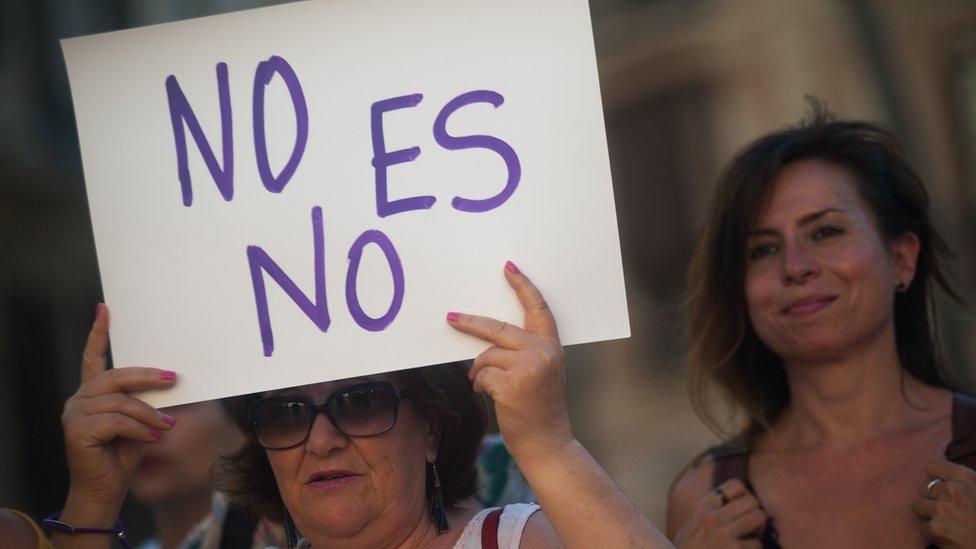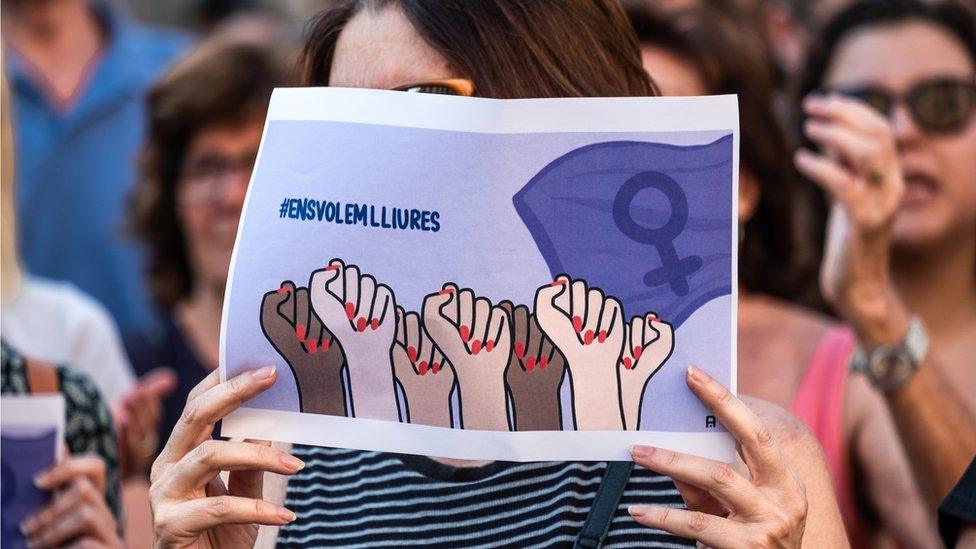Spain sexual assault: US issues security alert over rise in reported cases
- Published

Women rally at a protest against sexual violence in Malaga, Spain
The US has issued a security alert for its citizens visiting Spain in response to a rise in the number of reported sexual assaults across the country.
Students and tourists are advised to "drink responsibly" and avoid travelling alone in a set of guidelines published by the US embassy in Spain.
The embassy also advised citizens to familiarise themselves with the law.
Spain's interior ministry has reported a steady increase in sexual assaults nationally in recent years.
In a security alert posted online, the US embassy said that US citizens were among those to report serious instances of sexual violence, external.
It warned its citizens visiting or living in Spain not to "consume beverages that have been out of your control" and to use "the buddy system" - to travel with a friend or a family member.
"If you have been sexually assaulted, call 112 immediately... [and] consider contacting a local attorney to help you navigate the criminal justice process and protect your rights," the alert added.
It said the advice was issued in response to a rise in reported incidents over the last five years.
In January, three young US women alleged they were sexually assaulted at a New Year's Eve party in the southern Spanish city of Murcia.
Police questioned three suspects, who have all denied any wrongdoing, Spanish newspaper El Pais reported. The case is ongoing.
According to the latest figures from human rights organisation Geoviolencia Sexual, there were a record 73 cases of sexual assault carried out by multiple offenders in Spain in 2019.
The organisation reports 60 group assault cases in 2018 and just 14 in 2017.
In November, thousands of people took to the streets across Spain after a Barcelona court ruled that five men accused of gang-raping a 14-year-old girl had committed the lesser crime of sexual abuse.
This, the court said, was because the victim was in an "unconscious state".
Under current Spanish law, an offence of rape is the act of committing sexual assault using violence or intimidation.
Activists say rage over Spain's 'wolf pack' case ignited a feminist revolution
In 2016, Spain was shocked by reports of an attack on a teenage woman by five men who became known as the "wolf pack".
The men were initially charged with sexual abuse but, following widespread protests, Spain's Supreme Court later ruled that the attack was a gang-rape and the men were each sentenced to 15 years in prison.
- Published30 November 2019

- Published21 June 2019

- Published23 November 2018
